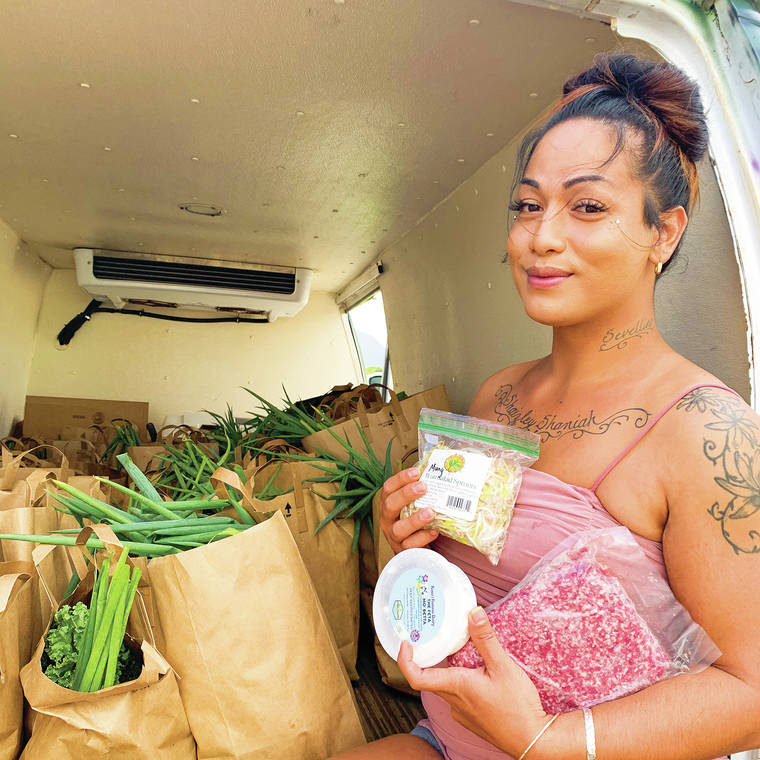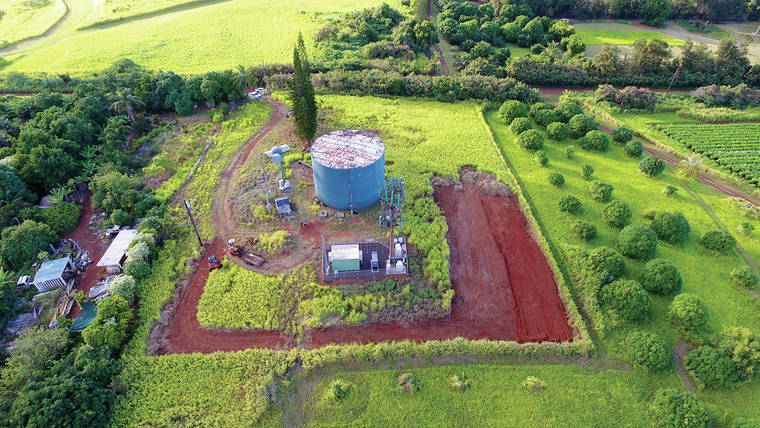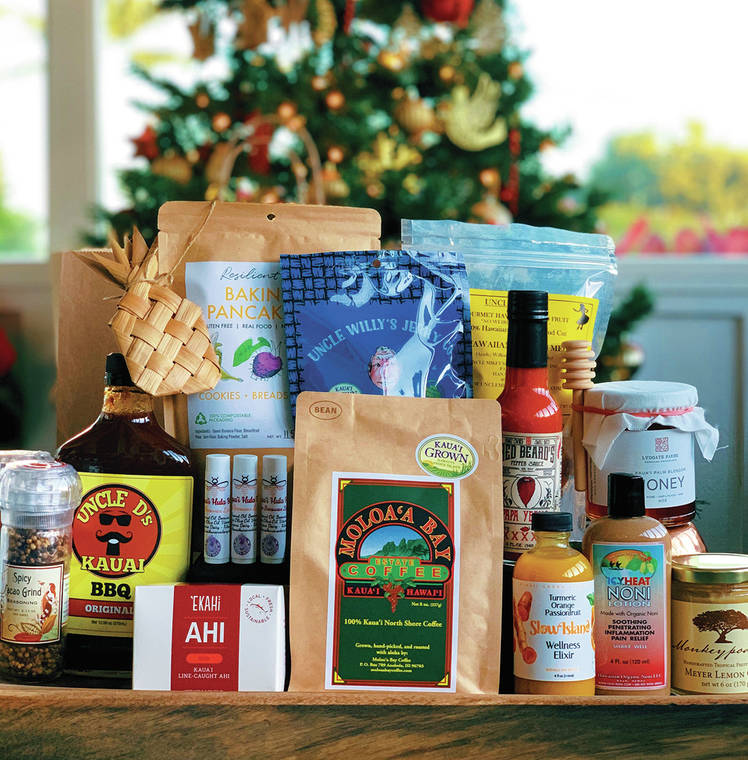MOLOA‘A — Malama Kaua‘i is offering locally-sourced holiday gift bags for sale to support 22 small local businesses who together source from 211 farms, ranchers and fishers across the island, as a fundraiser for Kaua‘i’s newest food hub — the Moloa‘a ‘AINA Center.
The food hub in Moloa‘a has been in the planning phase for a while.
In 2016, the Moloa‘a Irrigation Cooperative received a grant from the state to purchase the land for building a post-harvest facility for the area’s farmers.
The owner of the water tank that services the cooperative agreed to sell, rather than lease, that site to the water cooperative. This property will now be the home of the post-harvest facility, and as well will provide an additional step toward autonomy for the water system.
MIC has approximately 70 members spanning 600+ acres, and is arguably the largest concentration of commercial farmers on Kaua‘i. Until now, that post-harvest facility wasn’t ready to become a reality.
“Malama Kaua‘i is the ideal partner for MIC in the post-harvest-facility venture,” said Louisa Wooton, MIC manager.
“Thanks to the long-range vision of former chair of (state Board of) agriculture Scott Enright, and the determination of then-Rep. Derek Kawakami and Sen. Ron Kouchi, funding for the purchase of land to plan for the food hub is providing a much-needed boost to agriculture on Kaua‘i,” Wooton said.
The timing finally worked out.
Malama Kaua‘i’s headquarters and community farm was closing down after 12 years due to the property’s sale. After receiving a grant to start the septic-system engineering, the Anahola site where they were planning to install their commercial kitchen closed permanently due to COVID.
They were already responding to COVID through various programs, buying and distributing local produce through drive-thrus and home deliveries, working with over 40 partners and farms across the island.
These efforts helped to move over $1 million in local produce since March, which many farmers claim helped to save their farms from going under.
Malama Kaua’i also supported a variety of farmer-technical-assistance activities, helping farmers to pivot their business models away from tourists to local consumers and receive grant funding for things like wash stations, food safety upgrades and websites.
“We anticipate the Moloa’a ‘AINA Center will provide for small-farmer support, unity and vital resources in a business environment largely controlled by big mainland corporations,” says Jeremy Hillstrom of True Leaf Farm, who participates in Malama Kaua‘i’s produce-distribution efforts.
“The most-exciting thing is going to be access to facilities for cleaning, storing and processing foods grown in the area. There are many small farmers who can grow a mean crop, but because they don’t own their land, aren’t able to invest in infrastructure.”
Despite being declined for CARES (Coronavirus Aid, Relief, and Economic Security) act funding, the project has been moving forward without hesitation, using grassroots fundraising such as plant sales, ulu aggregation and distribution, community donations and a gift-bag sale for the holidays.
“Giving up isn’t an option,” said Megan Fox, Malama Kaua‘i executive director.
”COVID has shown us that farmers need this kind of infrastructure to strengthen their businesses, and the community wants streamlined access to good food,” Fox said.
“It’s been incredible to see people show up for a shared mission of achieving a sustainable food system. We honestly could not have taken on this project without the support and involvement from the community that we’ve received,” she said.
Part of that community-based bootstrapping includes contractors who provided significant discounts on grading, graveling and moving services — and lots of volunteers.
“I want to support anyone and everyone trying to gain energy independence with clean solar energy,” said Dan Muench, owner of La Mahi‘ai Solar, who helped during their move. “I especially admire Malama Kaua‘i with their mission to provide access to agriculture for local residents.”
The first phase of the project is underway, including establishing the commercial kitchen, office and a small packing area onsite, while the team continues delivering local food to those in need.
The project’s next steps include architectural design and engineering work, electric, plumbing and a septic system installation, so the commercial kitchen can be made ready for the MIC farmers to access, and the post-harvest facility can be built.
Malama Kaua‘i is also working with the Moloa‘a farmers to determine their desires for the post-harvest facility and center’s services.
“This is about keeping our largest concentrated group of farmers thriving on the ‘aina, producing healthy, local food that is accessible to the community,” said Fox. “The only way to create something like this is to get the farmers to tell us what they need and support them.”
While future program plans for the center are heavily reliant on Moloa‘a farmer guidance, Malama Kaua‘i hopes it expands on the programs they’ve been running for years.
These include activities such as aggregation for farm-to-school and other wholesale buyers, delivering farm-fresh, community-supported agriculture boxes for SNAP/EBT (Supplemental Nutrition Assistance Program, formerly food stamps/electronic benefit transfer card) users and other residents, and extending agricultural internship programs to support the Moloa‘a farms’ workforces for capacity-building.
Those interested in supporting the effort can make donations online or buy holiday gift packs to support the fundraiser at malamakauai.store.
Gift bags can be purchased for off-island shipping through Sunday, Dec. 13, or for free on-island delivery through Friday, Dec. 18.




